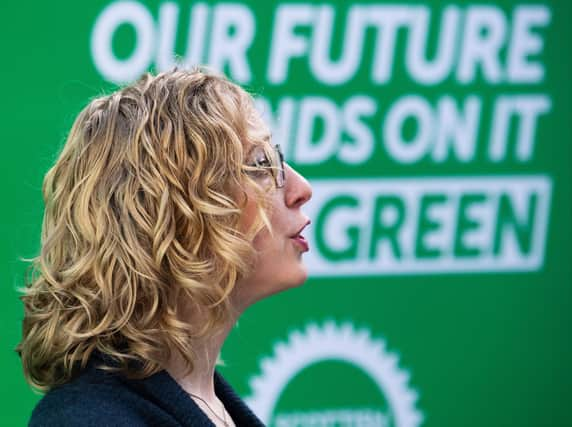Climate crisis needs urgent action now - Lorna Slater


But pandemics don’t treat everyone equally. It has been hard for all of us, but so many people’s experiences have been changed and shaped by things outside their control, with older people, disabled people and other vulnerable groups being hit particularly hard.
For many of us the last 18 months have meant a far greater emphasis on home working. Digital exclusion is still a big problem, but one of the longer-term legacies of Covid is that more employers and governments have had to show greater flexibility, making these options more available.
Advertisement
Hide AdAdvertisement
Hide AdThis has created new and better opportunities for a lot of people who are not necessarily able to travel into an office every day due to their health or caring responsibilities for example. It is not everyone’s preference, but for those who have benefited from greater flexibility, we need to ensure that they don’t lose it.
When it comes to accessibility it is our biggest institutions that need to be leading by example. The responsibility should not be on the individual. Yet COP itself hasn’t been accessible enough for everyone, with some campaigners, including Friends of the Earth, branding it “the most exclusionary COP ever.”
According to the COP26 Coalition – which represents indigenous movements and vulnerable communities around the world – around two-thirds of those it was helping to travel to Glasgow had to give up due to a combination of visa and accreditation problems, a lack of access to Covid vaccines and unaffordable accommodation.
For others, such as the Israeli Energy Minister, Karine Elharrar, who is a wheelchair user, the lack of accessible transport in and around the venue meant that she could not attend important meetings. This kind of exclusion is inexcusable, and is particularly shocking at an event like COP.
Advertisement
Hide AdAdvertisement
Hide AdWhen people are removed from the discussion it also removes their experiences. If we want new ideas then we need to make sure that it’s not just the same voices at the table.
We know that countries in the global south pollute far less than the wealthiest countries, and their voices cannot be excluded from the debate. They are already facing the worst effects of climate change and have fewer resources to help. It is not just climate action that is needed, it is also climate justice.
This week the Scottish Government doubled its climate justice fund to £24 million and announced a new partnership with the Climate Justice Resilience Fund to support communities that are suffering from loss and damage due to climate change. I would urge the UK and other governments to do their bit by making similar steps.
When I think about the huge changes that many governments and employers quickly made to working conditions in the aftermath of Covid it is a reminder of how fast things can happen when there is a sense of urgency.
Advertisement
Hide AdAdvertisement
Hide AdLike Covid, the urgency of the climate crisis demands action here and now. But it must be climate action with people at its heart. We cannot simply replicate all the existing inequalities. The fairer, greener world that we are building must be one that is inclusive and accessible to all. It must be one where everyone can flourish.
Lorna Slater is a Lothian Green MSP and Minister for Green Skills, Circular Economy and Biodiversity
Comment Guidelines
National World encourages reader discussion on our stories. User feedback, insights and back-and-forth exchanges add a rich layer of context to reporting. Please review our Community Guidelines before commenting.